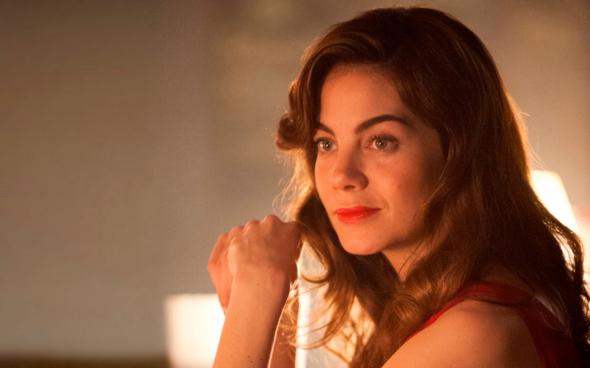True Detective Does Have a Woman Problem. That’s Partly Why People Love It.

LACEY TERRELL/HBO
Listen to our True Detective Spoiler Special, in which our critics debate the season finale:
Two weeks ago, I wrote a piece about True Detective’s relationship to its female characters, in which I argued that the superficial and sometimes exploitative way that it treated the women who appeared on the show—prostitutes, corpses, mistresses, a nagging wife—was intentional, a reflection of its heroes’ blinkered worldview and the very masculine, Southern cop culture they inhabited, and not the show’s own perspective.
Welp.
Last night’s finale made a hash of my case. Would that it had not. The series was not oblivious to questions of female representation—the show’s writer and creator Nic Pizzolatto has said as much—but women remained ancillary to the end. The women who appeared in the finale were Errol Childress’s damaged half-sister, a backwoods creature in lust to Errol—a man who, despite being a horrifying monster, was shown to be more than adequate at pleasuring her—and also Marty’s family, who appeared at his hospital bed, mostly as an excuse to give us a long close-up on Marty’s sobbing face. Like almost all the supporting characters on this show, the women were just sketches—occasionally naked ones—compared to our full-bodied detectives. The show’s major crimes involved endemic brutality against women and children, and victims is all that the women of this show remained, people against whom various wrongs were committed.
No TV show has an obligation to be everything to everyone. True Detective is a series I admired and enjoyed, and its treatment of women is not even the thing that irked me most about the finale, which left a number of niggling questions unanswered and finished on a "let there be light" riff. But it’s worth lingering on True Detective’s woman problem in part because that problem is closely, if not intentionally, tied to the show’s massive success: When it comes to prestige TV, there has yet to be a downside to out-bro-ing yourself.
In eight short weeks, True Detective has been granted greatest-show-on-television status on an extremely accelerated schedule. I understand why: McConaughey and Harrelson have been outstanding, their characters indelible. It looks great. It has been enticingly plotted, bread crumbs of Carcosa thick on the ground. If Rust’s banter hewed toward the dorm room, it felt authentically dorm-room: pretentious, sure, but also intelligent. And yet, there are other shows out there that traverse much of the same territory as True Detective—Top of the Lake, The Americans, Broadchurch, The Fall, to name a few—and none of them have gotten the frenzied attention of True Detective. None of those shows are on HBO. None of them feature movie stars. None of them seem explicitly built to appeal to Reddit users. But also—not unrelatedly—they are about women.
Last week, Mo Ryan published a piece about the number of dramas for premium cable that have been made by women. The number is completely laughable (except that it made me want to cry). Premium cable dramas, the prestige category par excellence, are shows created by men that are largely about men, the rare exceptions—Buffy, Battlestar Galactica, and Homeland—only proving the rule. (See also Brett Martin’s Difficult Men, a history of the recent golden age of television that makes this point with its title.) The “best dramas of all time,” that four-way race between Mad Men, Breaking Bad, The Wire, and The Sopranos, with Deadwood or Twin Peaks or Buffy tossed in for variety on occasion, are all exceedingly male shows, playing around with male-centric cop, mobster, and druglord genres.
True Detective slots into the great drama conversation because it, too, is a great-looking, beautifully acted show that expands upon genre pleasures with very heady themes. But it also takes the machismo even further. The antihero may be played out, but he is an indictment of a certain kind of masculinity. We are drawn to Walter White and Tony Soprano (and Frank Underwood for that matter) even though we know we should be disgusted by them. Antihero shows are an enactment of unthinking hero worship, one that implicates its audience. But Rust and Marty are not antiheroes, whatever Rust says about being a “bad man.” They are just heroes. In the visual language of the finale, Rust is basically Jesus Christ. True Detective is not an interrogation of masculinity, it is a celebration of one, with none of the squishy girl stuff getting in the way. (There is no conversation to have about how the viewers of True Detective wrongly disparaged Maggie in the way that Breaking Bad fans misogynistically denigrated Skyler because True Detective never even let Maggie be enough of a character to get in Marty or Rust’s way.)
I’m not saying that women can’t or don’t like True Detective. Obviously, I like True Detective. But I think whatever else it is, True Detective is an unfettered celebration of two men, men whose flaws and doubts and mistakes only make them more heroic, and this has been integral to the show becoming a phenomenon. The series has a lady problem, yes, but it is also a bro bonanza. It looks and feels like an all-time great drama, not just because of its production values, performances, and themes. It also looks like an all-time great drama because it’s mostly men on the screen.

